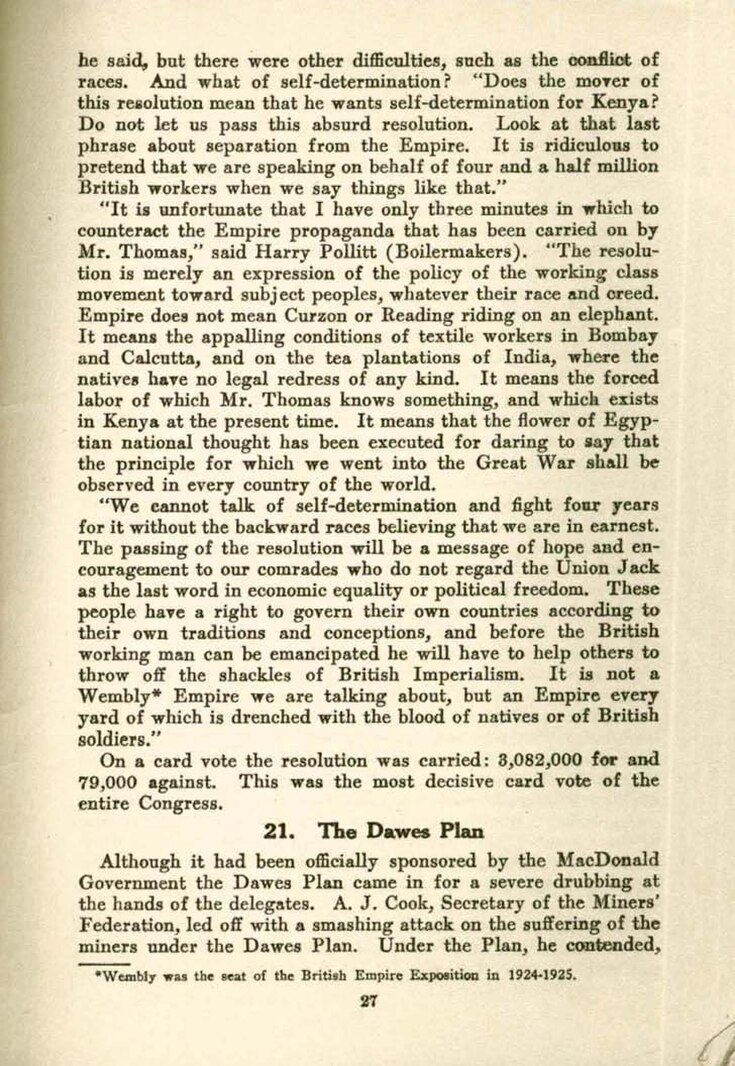he said, but there were other difficulties, such as the conflict of races. And what of self-determination? "Does the mover of this resolution mean that he wants self-determination for Kenya? Do not let us pass this absurd resolution. Look at that last phrase about separation from the Empire. It is ridiculous to pretend that we are speaking on behalf of four and a half million British workers when we say things like that."
"It is unfortunate that I have only three minutes in which to counteract the Empire propaganda that has been carried on by Mr. Thomas," said Harry Pollitt (Boilermakers). "The resolution is merely an expression of the policy of the working class movement toward subject peoples, whatever their race and creed. Empire does not mean Curzon or Reading riding on an elephant. It means the appalling conditions of textile workers in Bombay and Calcutta, and on the tea plantations of India, where the natives have no legal redress of any kind. It means the forced labor of which Mr. Thomas knows something, and which exists in Kenya at the present time. It means that the flower of Egyptian national thought has been executed for daring to say that the principle for which we went into the Great War shall be observed in every country of the world.
"We cannot talk of self-determination and fight four years for it without the backward races believing that we are in earnest. The passing of the resolution will be a message of hope and encouragement to our comrades who do not regard the Union Jack as the last word in economic equality or political freedom. These people have a right to govern their own countries according to their own traditions and conceptions, and before the British working man can be emancipated he will have to help others to throw off the shackles of British Imperialism. It is not a Wembly[1] Empire we are talking about, but an Empire every yard of which is drenched with the blood of natives or of British soldiers."
On a card vote the resolution was carried: 3,082,000 for and 79,000 against. This was the most decisive card vote of the entire Congress.
21. The Dawes Plan
Although it had been officially sponsored by the MacDonald Government the Dawes Plan came in for a severe drubbing at the hands of the delegates. A. J. Cook, Secretary of the Miners' Federation, led off with a smashing attack on the suffering of the miners under the Dawes Plan. Under the Plan, he contended,
- ↑ Wembly was the seat of the British Empire Exposition in 1924–1925.
27
